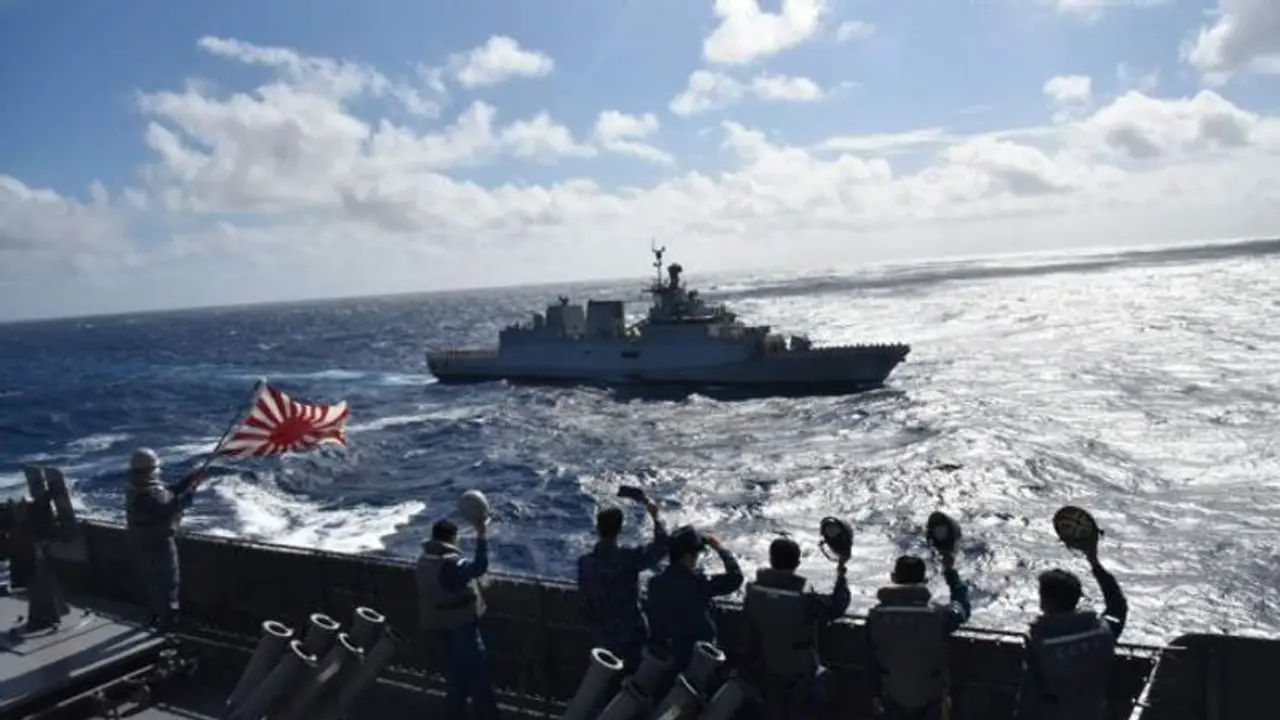Indian Navy has said that Malabar-2022 would see a high-tempo exercise between participating platforms in multiple domains.
Amidst belligerent Chinese behaviour in the Indo-Pacific Region, the navies of Australia, India, Japan and the United States will conduct their 11-day 30th edition of the Malabar exercise in Yokosuka island near the East China Sea from November 8.

Australia is the new entrant in the exercise that began in 1992. The Australian Navy became its part two years ago. These navies will hone and exchange their best maritime practices with each other.
Also See: PHOTOS: India-France Garuda VII air drills over Jodhpur
The warships of the Indian Navy -- Shivalik and Kamorta -- had already arrived at Yokosuka days ago to participate in the International Fleet Review, which would be reviewed by the Japanese prime minister, Fumio Kishida.
A total of 40 warships and submarines from 13 countries will participate in the International Fleet Review on November 6 at Sagami Bay off Yokosuka in Japan. The IFR will mark the 70th anniversary of the Japan Maritime Self-Defence Force (JMSDF).
Indian Navy has said that the exercise Malabar-2022 would see a high-tempo exercise between participating platforms in multiple domains.
Also Read: 'F**k off' is offensive, sexually coloured phase and not used in Indian society: Delhi court
"Complex surface, sub-surface and air operations, including live firing drills, are scheduled during the exercise." said the Navy.
The Indian warships --- INS Shivalik and INS Kamorta -- have been indigenously designed and developed as a multi-role guided missile stealth frigate and an anti-submarine corvette, respectively. They form part of the Visakhapatnam-based Indian Navy's Eastern Naval Command.
Initially, the Indian Navy and the US Navy were exercising together in the Indian Ocean Region since 1992. In 2017, Japan joined the exercise, followed by the Australian Naval Forces in 2020.
These countries have also formed their group known as the Quad, which is being seen as a grouping against the Chinese. The quad has been formed to support the principles of freedom, the rule of law, democratic values, sovereignty and territorial integrity, peaceful settlement of disputes without resorting to threat or use of force, any unilateral attempt to change the status quo, and freedom of navigation and overflight, all of which are essential to the peace, stability and prosperity of the Indo-Pacific region and to the world.
Also Read: Nearly 50 million doses of Covaxin likely to expire early 2023 due to poor off take
